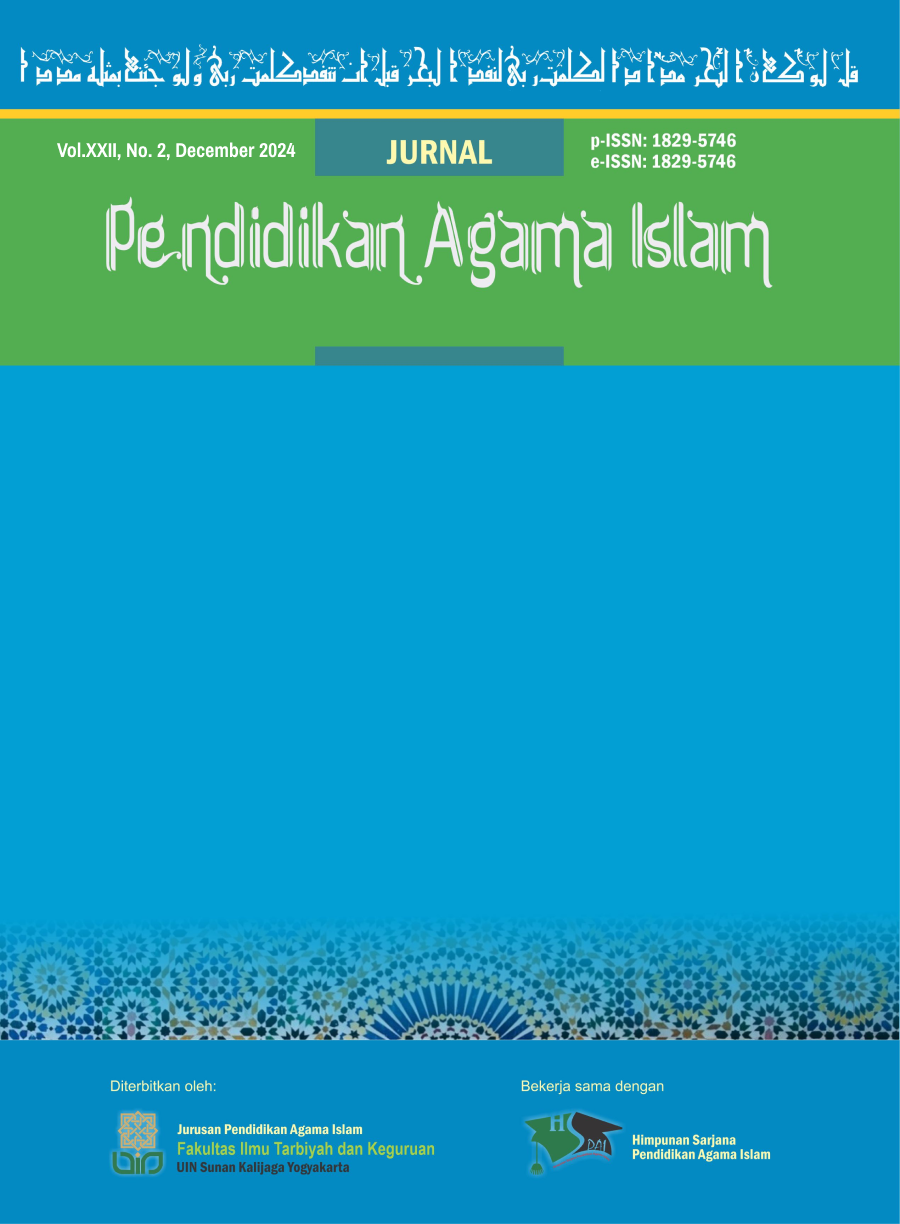The Roles of Educational Stakeholders in the Finnish Education System: Insights for Islamic Education in Indonesia
##plugins.themes.bootstrap3.article.main##
Abstract
Purpose – This study aims to identify the role of educational stakeholders in the Finnish education system and analyse the principles that can be used to improve the quality of Islamic education in Indonesia.
Design/methods/approach – This research is library research that collects data from various sources, such as academic journals, books, websites, and also related publications. Content analysis is used to analyse data in three steps, namely data collection, data reduction, and drawing conclusions.
Findings – The principles in the role of educational stakeholders in Finland could provide new insights to improve the quality of Islamic education in Indonesia. Some of these principles include intense collaboration between educational stakeholders, educational policies whose main aim is to support the student learning process, a participatory approach in making curriculum and educational policies, and a research-based approach is applied in the education system.
Limitations – The data from this study is limited to the literature. Future research can use different approaches to get more in-depth results, for example by conducting in-depth interviews with educational stakeholders in Finland and Indonesia.
Originality/value – This study provides a new perspective to improve the quality of Islamic Education in Indonesia from Finnish approach.
Keywords:
Downloads
##plugins.themes.bootstrap3.article.details##
Copyright

This work is licensed under a Creative Commons Attribution-ShareAlike 4.0 International License.
Copyright Notice
Authors who publish with this journal agree to the following terms:
- Authors retain copyright and grant the journal right of first publication with the work simultaneously licensed under a Creative Commons Attribution License that allows others to share the work with an acknowledgement of the work's authorship and initial publication in this journal.
- Authors are able to enter into separate, additional contractual arrangements for the non-exclusive distribution of the journal's published version of the work (e.g., post it to an institutional repository or publish it in a book), with an acknowledgement of its initial publication in this journal.
- Authors are permitted and encouraged to post their work online (e.g., in institutional repositories or on their website) prior to and during the submission process, as it can lead to productive exchanges, as well as earlier and greater citation of published work.
References
Anis Fuad & Kandung Sapto Nugroho (2014). Panduan Praktis Penelitian Kualitatif, Graha
Ilmu, pp. 63-65.
Bakar, M. Yunus Abu (2015). Problematika Pendidikan Islam di Indonesia. DIRASAT, Jurnal
Manajemen dan Pendidikan Islam. Vol. 1, No.1, Juli-Desember 2015.
Chung, J. (2009). An Investigation of Reasons for Finland’s Success in PISA. PhD thesis,
University of Oxford.
Chung, J. (2023). Research-informed teacher education, teacher autonomy and teacher
agency: the example of Finland. London Review of Education, 21 (1), 13. DOI: https://doi.org/10.14324/LRE.21.1.13
Finnish National Agency of Education. (2022) https://www.oph.fi/en/about-us
Finnish National Board of Education. (2016). National Core Curriculum for Basic Education 2014. Helsinki: Digital Publication.
Jalaluddin (2016). Pendidikan Islam: Pendekatan Sistem dan Proses, Rajawali Pers, pp. 144-145
OECD (2020), Education Policy Outlook: Finland. www.oecd.org/education/policy-outlook/country-profile-Finland-2020.pdf.
Ministry of Education and Culture. (2022) https://okm.fi/en/ministry
Ministry of Education and Culture & Finnish National Agency for Education. (2018). Finnish
basic education excellence through equity for all. https://okm.fi/documents/1410845/4183002/Finnish+Basic+Education+-+Excellence+through+Equity+for+All+2018+(brochure)
Ministry of Education and Culture & Finnish National Agency for Education (2017). Finnish
education in a nutshell. https://www.oph.fi/sites/default/files/documents/finnish_education_in_a_nutshell.pdf
Mohammad Kosim, Faqihul Muqoddam, Faidol Mubarok & Nur Quma Laila (2023) The
dynamics of Islamic education policies in Indonesia, Cogent Education, 10:1, 2172930, DOI: 10.1080/2331186X.2023.2172930
Niemi, Hannale, et. al. (2018). The Role of Teachers in the Finnish Educational System. DOI:
1163/9789004372573_004
Niemi, H., Lavonen, J., Kalloniemi, A., & Toom, A. (2018). The role of teachers in the
Finnish educational system. In H. Niemi, A. Toom, A. Kallioniemi, & J. Lavonen (Eds.), The Teacher’s Role in the Changing Globalizing World (pp. 47–61). https://doi.org/10.1163/9789004372573_004
Sahlbreg, Pasi (2007). Education Policies for Raising Students Learning: Finnish Approach.
Journal of Educational Policy. Vol. 22, No.2, March 2007, pp. 147-171.
Sahlberg, P. (2011). Finnish Lesson: What can the world learn from educational change in
Finland? New York: Teacher College Press.
Simola, H. (2005). The Finnish miracle of PISA: Historical and sociological remarks on
teaching and teacher education. Comparative Education, 41(4), 455–470.
Soini, T., Pyhältö, K., & Pietarinen, J. (2021). Shared sense-making as key for large scale
curriculum reform in Finland. In M. Priestley, D. Alvunger, S. Philippou, & T. Soini (Eds.), Curriculum making in Europe: Policy and practice within and across diverse contexts (pp. 247-272). Emerald. https://doi.org/10.1108/978-1-83867-735-020211012
Turku Teacher Training School (2023). https://sites.utu.fi/tnk/en/teacher-training-2/
106
Views
64
Downloads





